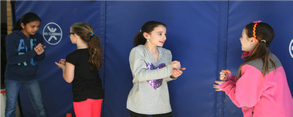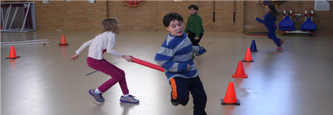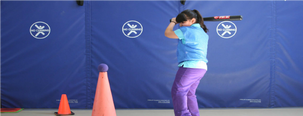powerup pe training videos
|
The following set of three videos offers tips for teaching at all elementary grade levels, with strategies to maximize activity and learning. There are organizational strategies to streamline the day’s activities, strategies for incorporating additional subjects into physical activity to improve development in both areas, and helpful technologies that teachers and students can use together to assess skills and set performance goals.
Organizational
|
interdisciplinary
|
Assessment Techniques &
|
This set of videos features activity lessons that encourage the development of essential motor skills for children of different ages. In addition to learning and practicing motor skills, students are consistently moving and also developing important social skills such as cooperation, self-confidence and personal responsibility.
productive motor skills
|
productive motor skills
|
productive motor skills
|



